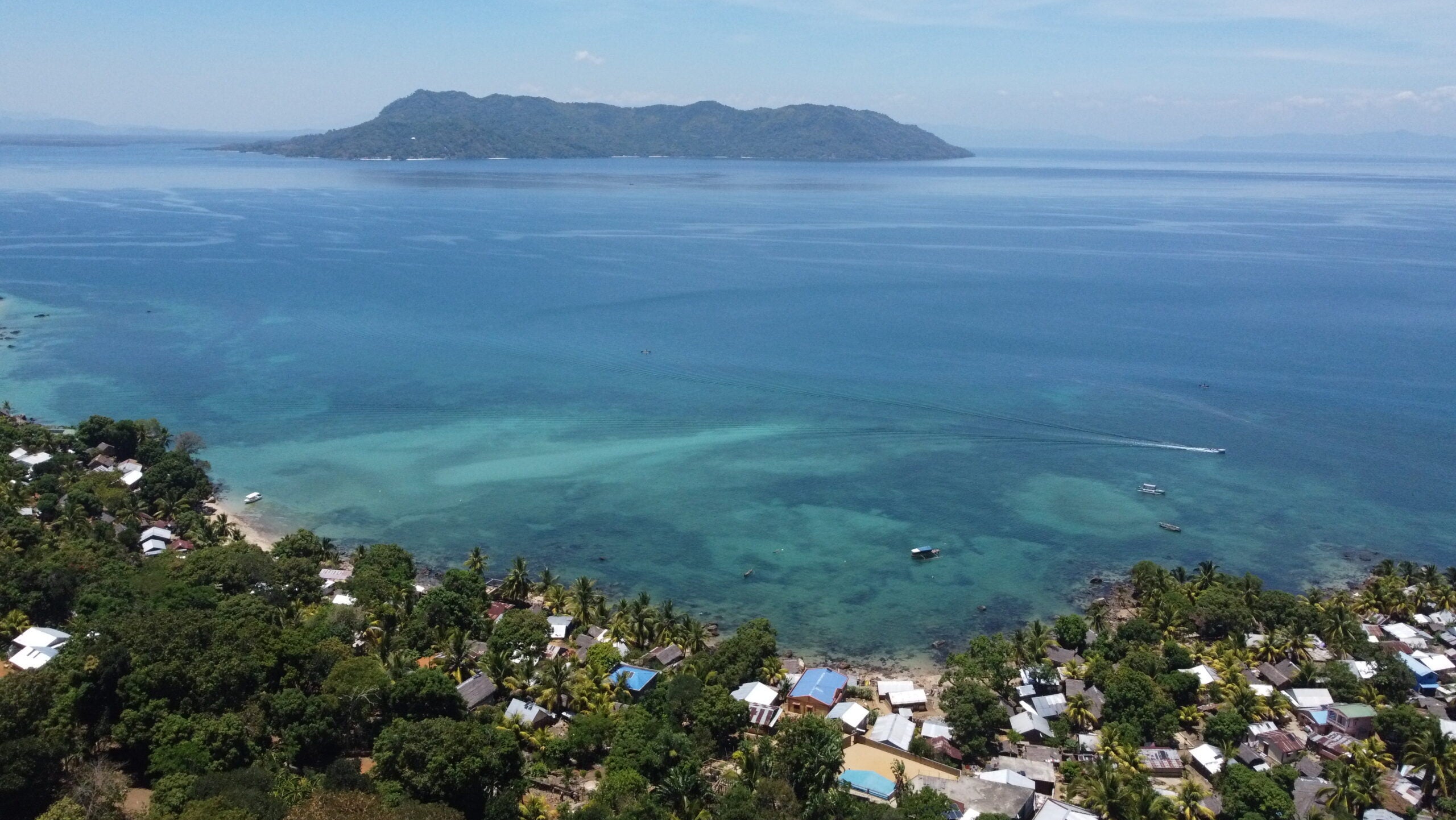June 7, 2024
The University of Rhode Island’s Coastal Resources Center (CRC) is joining the United States Agency for International Development (USAID) and key Republic of Madagascar government ministries in launching a major new initiative to support environmental conservation and sustainable development in the African nation. The initiative is part of a $41 million investment over the next five years, doubling the U.S. government’s investment in Madagascar’s environmental sector.
The CRC-led project is among three new USAID activities:
- USAID Riake (Sea): Led by CRC, this project focuses on marine conservation, spatial planning, and sustainable livelihoods of coastal communities.
- USAID Harena (Treasure): Led by DAI, this land-based project aims to enhance livelihoods, bolster conservation efforts, and mitigate threats to biodiversity near protected areas.
- USAID Mizana (Scales of Justice): Led by Alliance Voahary Gasy, this initiative seeks to improve environmental governance through advocacy and anti-corruption strategies.
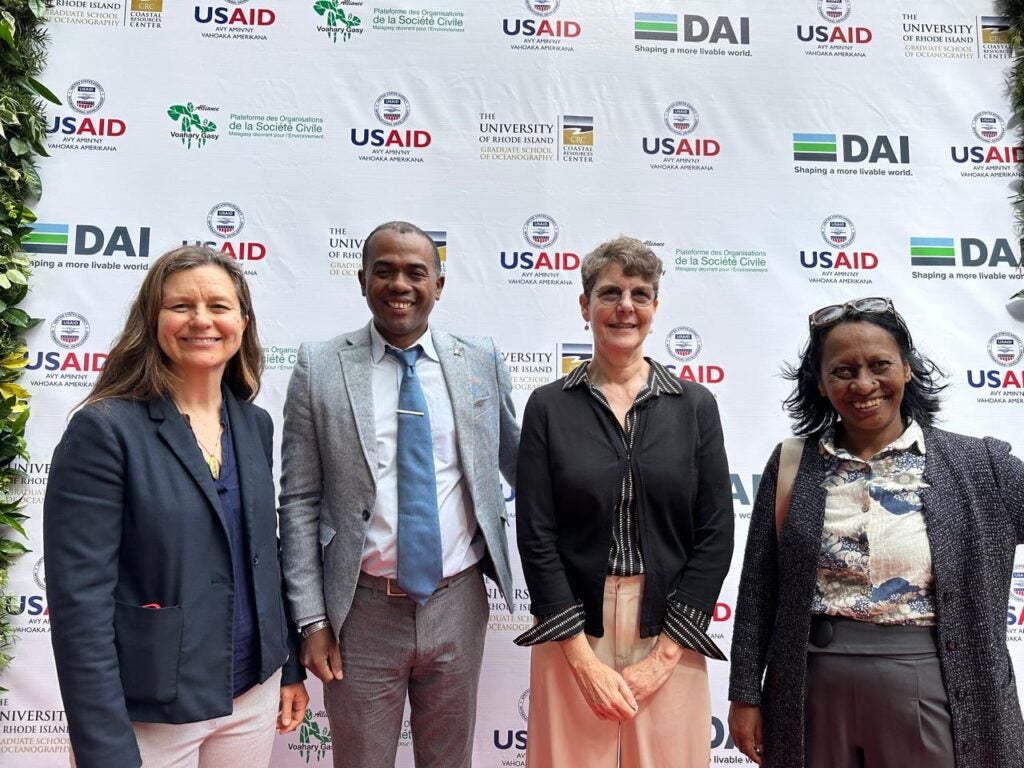
USAID Riake: Enhancing Marine Conservation and Coastal Livelihoods
The Coastal Resources Center has been awarded $13 million from USAID to lead the ocean component of this initiative through the USAID Riake Project, which will create and support resilient and empowered communities that inherit and maintain biodiverse, well-managed, secure and sustainable marine ecosystems.
The USAID Riake (which means sea in a local dialect) project will achieve this goal through five strategic approaches: improving sustainable management of natural resources through both marine protected areas and locally managed marine areas; promoting diversified, sustainable livelihoods; improving governance, advocacy, and anti-corruption efforts in coastal resource management such as countering illegal, unreported and unregulated fisheries; increasing resilience of coastal communities and ecosystems to climate shocks; and strengthening marine tenure policy implementation and marine spatial planning.
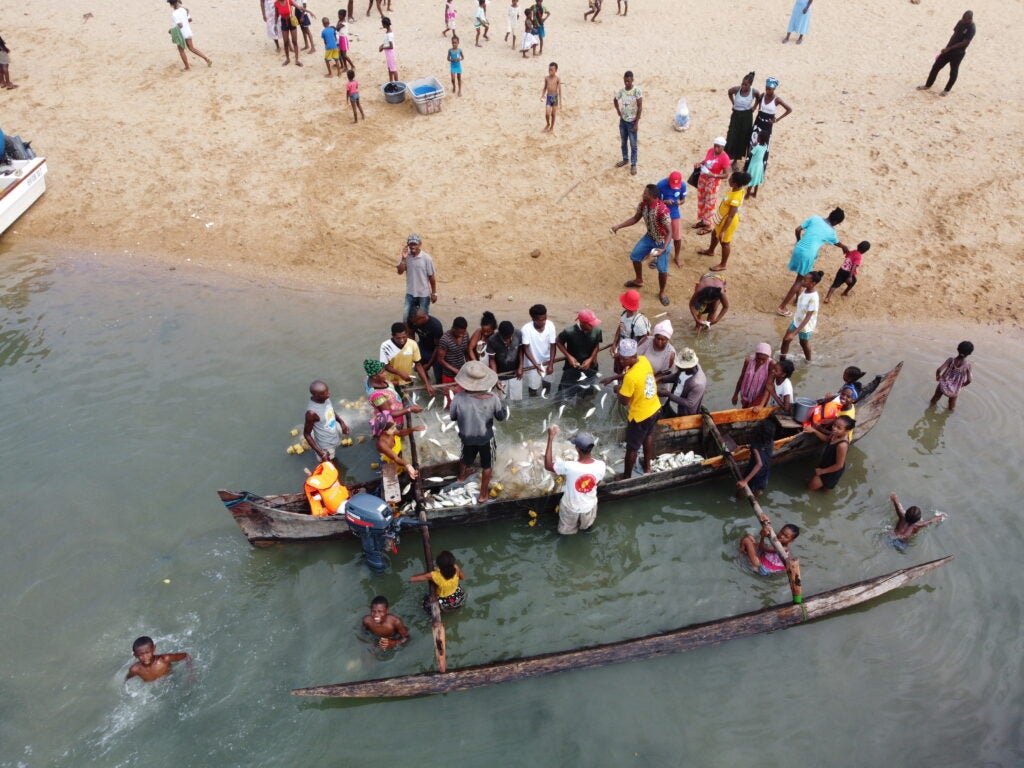
The opening of the Mahaloky fishing season in Nosy Faly. 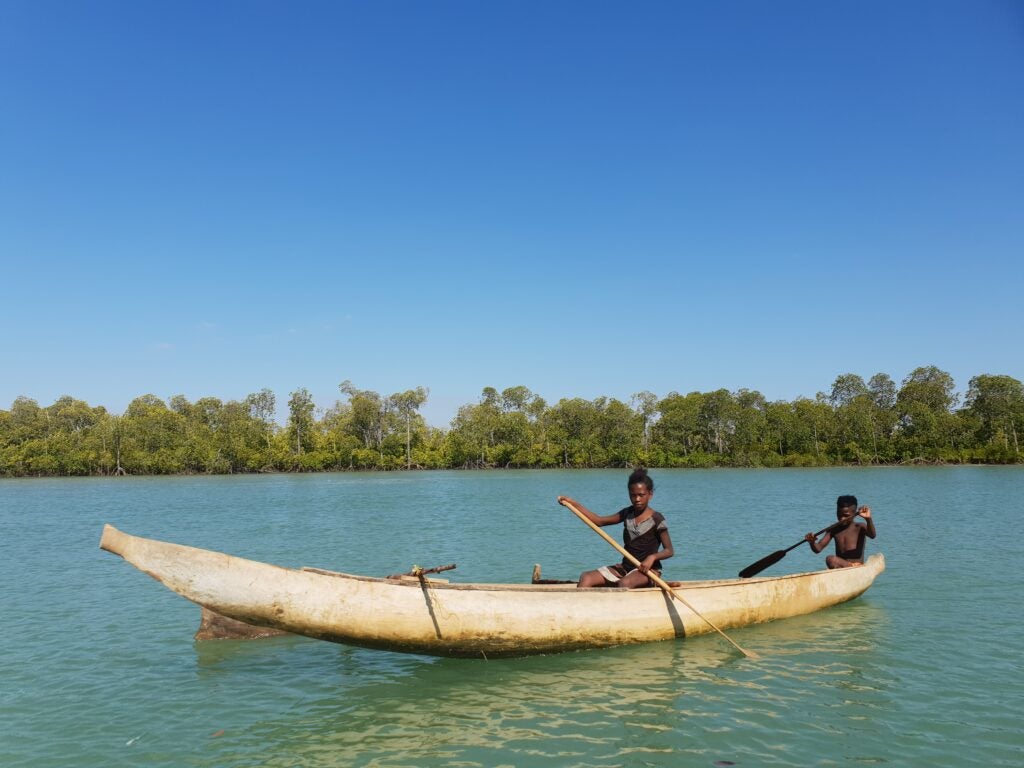
Villagers navigate the Kivalo mangrove channel by pirogue.
Following a year and a half of proposal development and co-creation, the project Principal Investigators recently traveled to Madagascar to launch the project. Sarah Gaines, coastal research associate at CRC, and Karen Kent, associate coastal manager at CRC, traveled to Antananarivo, Madagascar in May to spearhead this effort with Malagasy team members, Ny Aina Andrianarivelo and Tiana Rahagalala, and a consortium of partners including Blue Ventures, the Wildlife Conservation Society, MIHARI – the Madagascar network of Locally Managed Marine Areas, SIF – a local territorial planning organization, and the Fisheries and Marine Sciences Institute (IHSM) of the University of Tuliar.
“We are thrilled to have this opportunity to work with a stellar consortium of local partners in Madagascar to protect the marine biodiversity and livelihoods of coastal people in one of the largest islands in the world – home to incredible natural wealth and crushing poverty,” shared Gaines.
Building on a Legacy of Conservation in Madagascar
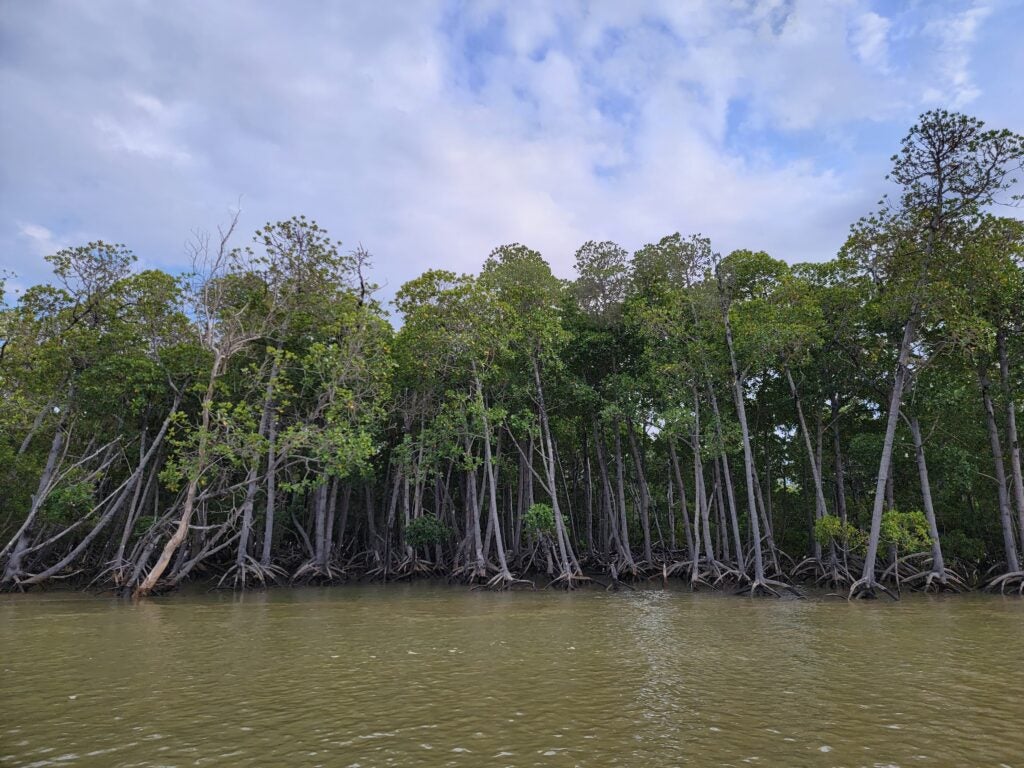
The CRC is in its sixth year implementing projects in Madagascar, bringing extensive experience to community-based management of marine and coastal resources as a member of the Pact Consortium on the USAID Hay Tao project. USAID Hay Tao focused on increased knowledge, capacity and policy for resource management. Since last year, the same core CRC team has been implementing a U.N. Development Program Ocean Innovation Challenge on community roles in locally scaled marine spatial planning, inspired by previous CRC work in Rhode Island on Special Area Management Plans.
The USAID Hay Tao project included the launch of a Fisher Women Leadership Program that empowers women leaders in the fishing community from all over Madagascar to take a substantial role in fisheries management. Under USAID Riake, this project will be upscaled.
“This new award demonstrates increasing recognition of the development community – previously focused primarily on terrestrial biodiversity – to the importance of the coastal and marine regions of Madagascar to the island nation’s biodiversity and human well-being,” shared Gaines. “We will bring CRC approaches and connections from our projects around the world and here in Rhode Island to USAID Riake.”
The Coastal Resources Center in the Graduate School of Oceanography focuses on using science to address societal issues.
This story was written by Mackensie duPont Crowley, digital communications coordinator with URI’s Graduate School of Oceanography.

